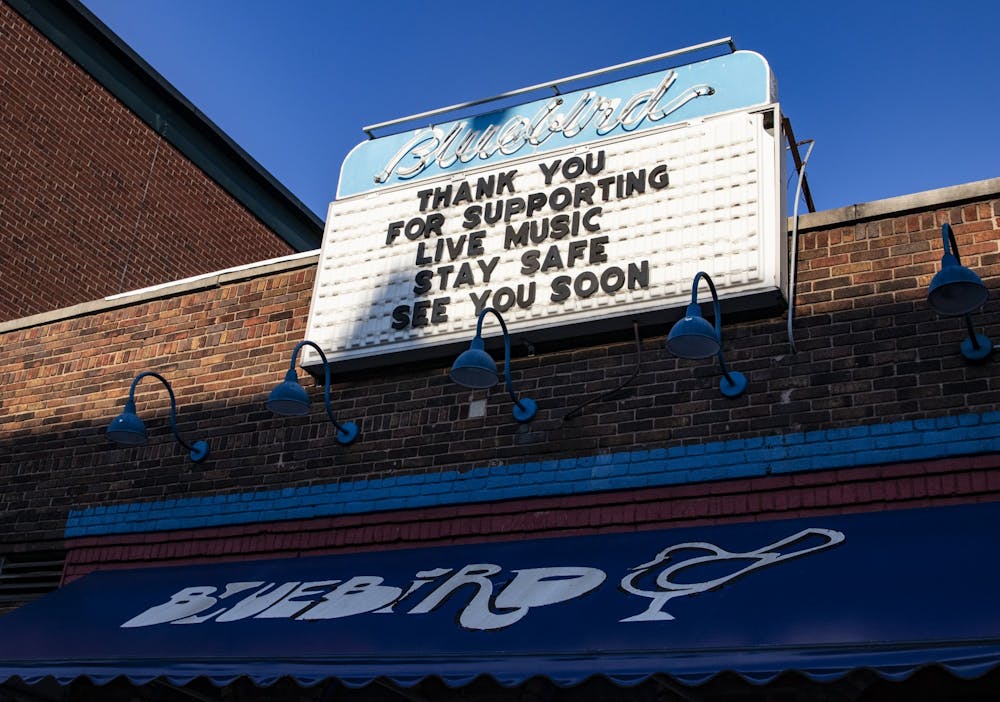When local musician Byrne Bridges found out her upcoming concert had been canceled due to coronavirus concerns, she said she was disappointed for about 12 hours. But when the reality set in that live music everywhere was being canceled for the sake of public health, her mentality quickly shifted.
“What we’re used to doing as live musicians is no longer a commodity we can risk,” Bridges said. “Local live music is not an urgent thing we need right now.”
Bridges is one of many local musicians now unable to perform live following Gov. Holcomb’s executive order to close bars and restaurants. Before large gatherings of people became a public health concern, Bridges said she was scheduled to embark on a tour with her band but has now had to cancel all of her shows until May.
Although it’s upsetting to lose the ability to perform live, Bridges said she’s now focused on writing and producing music.
She said she’s working on a compilation of music written and recorded by herself and approximately 20 other musicians. The proceeds will go toward Lysistrata, a mutual aid fund for sex workers, whom Bridges said have been heavily affected by coronavirus.
Bridges said working to help others has been a good way to deal with her stress and anxiety surrounding the pandemic.
“A lot of musicians probably will be looking for ways to get creative during this time,” Bridges said. “My priority is how I can use what I do to help with people.”
Quarantine might have a bright side for those who will use the time to produce music, but musicians are still taking a hit financially, local musician Hunter Nico said. In addition to losing income because of live gig cancellations, musicians who give lessons or engineer recording sessions are also out of work.
But it’s not just the musicians who are suffering in the absence of live performances, Nico said. It’s also the audience members.
“What we do is bring people together in the community,” Nico said. “The human connection people get from music is essential. There’s been that loss of that connection.”
In most communities, the local music scene is tightly connected with the local restaurants because musicians often perform there, Nico said. Without any customers to bring in revenue, many Bloomington venues such as the Bishop, the Bluebird and Back Door have set up GoFundMe accounts to raise money for their employees.
Blockhouse Bar owner David James said he decided to close March 13 when he realized how serious the problem was becoming. He said he doesn’t know when they’ll be allowed to reopen, meaning his employees are out of work indefinitely.
The Blockhouse also has a GoFundMe campaign.
“Some generous supporters have asked for a means of supporting us,” James said. “It’s a digital tip jar to bridge the gap.”
Music venues are just one of the many types of private businesses being shut down, James said. Manybusiness owners are waiting for the federal government to step in and help people across the service industry, he said.
As for the Bloomington music scene, James said that it’s too soon to tell how music venues will be affected long term. But there will always be music, he said.
“There’s a lot of great local musicians in this town and they’re not going anywhere soon,” James said.




